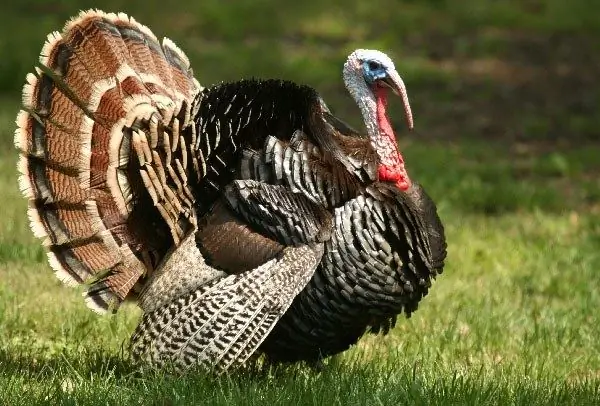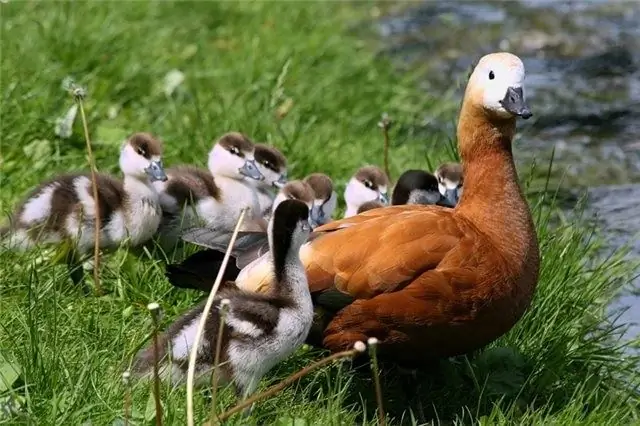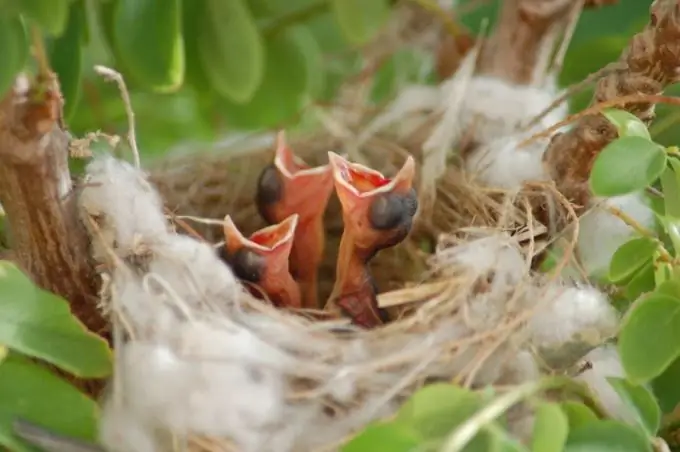Turkeys are rightfully considered the largest agricultural birds, as their weight sometimes reaches twenty kilograms. Turkey meat is nutritious, has dietary properties and is easily absorbed by the human body. The egg production of these birds is low, so they are bred for meat. Novice poultry farmers are concerned about one question: how to properly keep turkeys?

Instructions
Step 1
It is possible to grow highly productive turkeys, subject to proper maintenance and care. Since this bird is majestic in size, calculate the density of its placement. There should be no more than two birds per square meter of floor. Set up one nest in the very center of the house, which should accommodate five turkeys. Place males in a separate room to avoid injury to females.

Step 2
The poultry house should maintain an optimal temperature (18-20 degrees in summer, 3-5 degrees in winter) and there should always be fresh air. Sharp temperature fluctuations negatively affect the condition of the bird. Turkeys do not tolerate severe frosts, dampness and drafts. The litter in the house should always be dry by regularly ventilating the area. Use straw, shavings, or dry sawdust as bedding, which should be changed every two weeks.

Step 3
The length of daylight hours is of great importance for turkeys. To do this, the windows in the house should be located on the south side so that the entire area of the house is illuminated during the daytime. Under the windows, make manholes with insulated doors so that the turkeys can freely go for a walk. Equip the house with nests, drinkers, feeders, perches and ash baths.

Step 4
Turkeys have a great need for amino acids, animal proteins, vitamins A and E. To prepare wet food, use yogurt or reverse, add several types of grains, eggs, cottage cheese, fish or meat and bone meal and herbs. There should always be water and compound feed in the feeders. Be sure to add vitamin, protein and mineral supplements ("Felucene", "Ryabushka", "Aminovitan") to any feed, whether it is an industrial mixture or a home-made mash.
Step 5
Since turkeys are considered grazing birds, feed costs can be reduced in summer. Provide a bird-walking area at the rate of twenty square meters per bird. Equip the area with drinkers, feeders, and shade canopies. Sow the area with clover, alfalfa, sainfoin, vetch, peas, or oats.
Step 6
In winter, turkeys sometimes encounter vitamin deficiency, which develops due to a lack or absence of vitamin A in their body. With the disease, the work of the nervous system and the gastrointestinal tract is disrupted. To avoid this, feed the birds sauerkraut, green hay, clover, nettles, and wood brooms during the winter.







